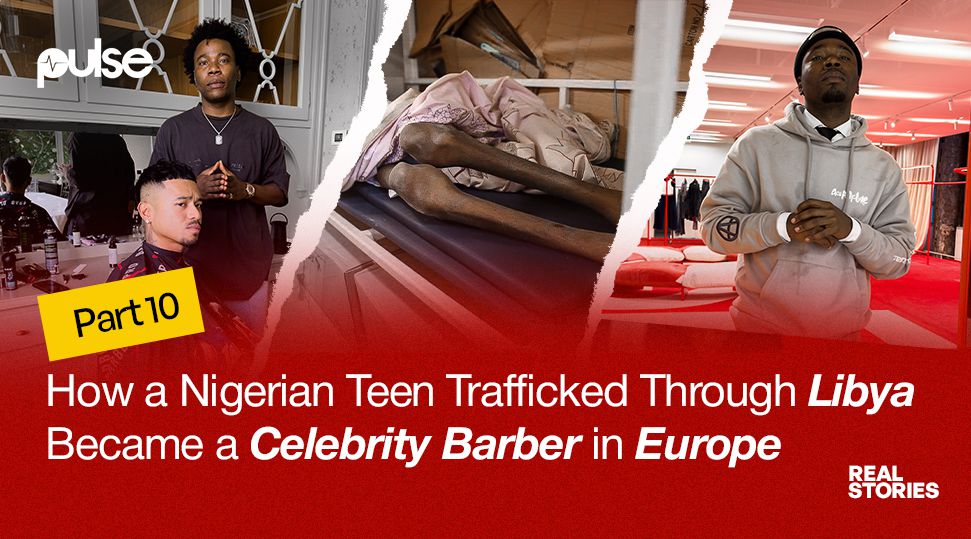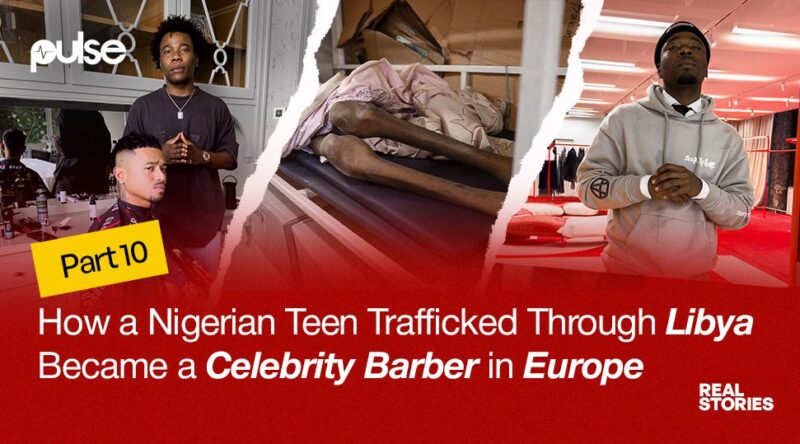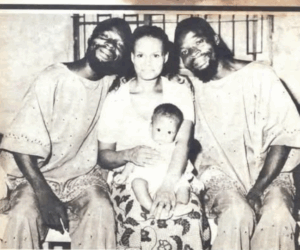
Part 9 recap:
In Part 9, Jimmy hit rock bottom in Italy. Homeless, robbed, and ready to give up, he walked into a police station and asked to be deported. But instead of sending him away, a policewoman listened.
When she learned he had once worked legally on an olive farm where his taxes had been paid, she told him about a new law that could change everything. For the first time in years, Jimmy saw a real path to freedom.
Catch up here: Part 9: How a Nigerian teen trafficked through Libya became a celebrity barber in Europe
The paperwork and proof
When the policewoman told Jimmy to go back to the tax office and find the records from that olive farm, he didn’t wait.
He got the tax records as fast as he could, returned to the station, handed the paper to the officer, and held his breath.
She glanced over the document, scanned the lines, then looked back at him and said simply: “Okay. Now we can start.”
And just like that, it began. A new process.
This time, it wasn’t about trauma. It wasn’t about proving how broken he was, begging for sympathy or recounting pain for the hundredth time in front of stone-faced panels. This was a cleaner case, built on numbers, not on memories.
Instead of saying, “I’ve been tortured,” Jimmy could now say, “I’ve worked here. I’ve paid taxes. I’ve done my part.”
And that changed everything.
Three months later, the officer called him. His papers were ready. Just like that! After so many dead ends, so many lies and false promises, after spending years floating between countries, systems, and shadows, he got even better than what he’d hoped for.
The grind behind the name
Even after the tides began to shift, after Jimmy got that piece of paper and the policewoman helped him start a new case built on proof rather than pain, he didn’t relax. He couldn’t, because peace in Europe didn’t mean comfort, and having a shot at staying didn’t mean he had arrived.
So he kept moving, kept hustling, kept grinding his way through the cracks of a system that still hadn’t fully opened its doors.
He cut hair, yes, but that wasn’t the full story, not by a mile. He washed people’s cars. He cleaned up their kitchens, did dishes, swept floors, and did home services that stretched far beyond a haircut. He’d walk into people’s apartments with his clippers tucked neatly into a backpack like a sacred tool, offer them a fresh fade or a lineup, and afterward ask politely, “Do you need help with anything else?” Just to earn a little more. Just to make sure he had something to eat that day.
It was during that hustle that he met her, a Nigerian girl who saw him, opened her door to him, offered him space in the crowded apartment she shared with others. That space became home for almost two years.
He never took her kindness for granted. He worked even harder, moving from house to house, city block to city block, clippers always with him, sometimes on foot, sometimes by bus, doing home services.
And slowly, something began to happen. People started talking.
Clients would go to work or show up at the club and someone would ask, “Yo, who cut your hair?” and without fail, they’d say, “This guy called 360.” No flyers. No social media ads. No glossy branding. Just the oldest form of marketing known to man: word of mouth. And it spread like wildfire.
Jimmy was building trust, one head at a time. He was obsessed with getting better, watching YouTube videos until his eyes hurt—tutorials from barbers in the US, breakdowns of different styles, close-up videos of fades, tapers, how to hold clippers at an angle, how to blend seamlessly, how to read the grain of different hair textures: white, Black, Asian, straight, coily, thick, thin.
And he practiced every day until the cuts got cleaner, the fades sharper, the lines more confident. His hands developed a memory, a language of their own.
And then came the first real breakthrough.
He got a call to cut a football player from Italy’s Serie B, one of the smaller professional leagues, but still big enough to matter. Jimmy didn’t hesitate. He pulled up, tools in hand, and gave the guy a taper fade, a style no one in Pescara was really doing at the time. He had been working on it since 2016, sharpening it like a blade, making it his signature. That day, he made it art.
The player’s girlfriend saw the cut and screamed, called friends over, took pictures, said she’d never seen him look that good. And right there, in the middle of the laughter and compliments, the player turned to Jimmy and said, “You’re coming with me. You’re going to start cutting my teammates.”
And just like that, everything changed.
Don’t miss Part 10 of Jimmy’s story next Friday, only on Pulse.ng







